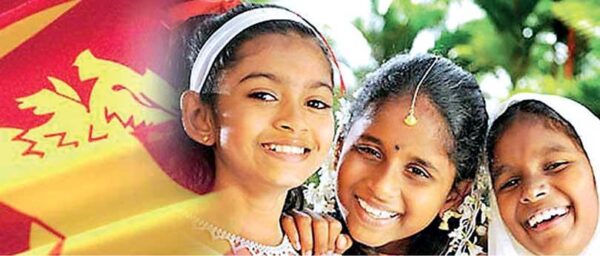Multiculturalism: Why Acknowledgement Matters? – By Randika Jayakody & Jerome Perera

Image Source : dailymirror
Source : Dæhæna – Monthly e-Newsletter November 2022 – Queensland Sri Lankans
The daily routines of Sri Lankans are dependent on the enormous effects of multiculturalism on the island. Not many of us can escape the cravings for a cup of tea with biscuits or refrain from using the many Portuguese, English or Tamil words embedded in the Sinhalese language. Neither can we avoid garbing ourselves in a sarong, eating the many dishes contributed by the communities or avoid taking a step to the beats of Baila. The effects of multiculturalism are all around us, but as a community we are often blinded to them.
Many often question the benefit of understanding these concepts, yet others question the agenda behind the dissemination of information about multiculturalism. Our perspective as Third Culture Children is that many of us growing up away from Sri Lanka have been questioning our cultural identity and place in the world our entire lives. Yet we received no satisfactory answers. As migration out of Sri Lanka continues at alarming rates, there will be many more children seeking to understand their cultural identity. A realistic understanding and acknowledgement of multiculturalism and the uniqueness that it brings to the Sri Lankan community may help build a genuine sense of cultural identity around which future generations can cohere .
People often ask, “What inspires pride about your country?” As it stands, there is very little to which young Lankans, in Sri Lanka and abroad, can associate with in order to inspire a sense of pride in their cultural identity. Acknowledging and accepting Sri Lanka’s multiculturalism may fill this gap and provide an inclusive idea around which we could inspire meaningful pride.
Acknowledging and becoming secure in an identity of multiculturalism may also be economically beneficial. For instance, Malaysia has successfully overstated its diversity, thereby attracting tourists seeking cultural experiences from around the globe. Countries such as Australia embrace and even promote the presence of cultural diversity benefitting both in terms of tourism and global impact. Therefore, acknowledging multiculturalism may help Sri Lanka capitalise on one of its most historic strengths.
Acknowledging multiculturalism will also help address the wounds resulting from decades of ethnic conflict by providing common ground for various communities upon which to bond. When we truly understand that the Kandy Perahera, Avurudu, Eid, Pongal, Christmas, and Diwali are not separate but shared experiences existing only because various communities contributed to their creation, it becomes difficult to “other” our fellow Sri Lankans.
Ethnic segregation and disharmony have often been weaponized for various political agendas throughout Sri Lanka’s history and embracing multiculturalism and understating our connections will provide an avenue through which to transcend and challenge the effects of half a century of divisive politics. Moreover, acknowledging multiculturalism will also help to redress the historical alienation of so many communities who have all contributed to the living food, culture, fashion, music, and languages landscapes of SL. Finally, embracing the reality of multiculturalism in Sri Lanka will have a multitude of benefits and help individuals with Sri Lankan connections to truly value the satisfaction of being connected to this beautiful country.
 Randika Jayakody & Jerome Perera
Randika Jayakody & Jerome Perera
Among Randika and Jerome’s many interests is
a deep passion to understand Sri Lankan
history and culture







